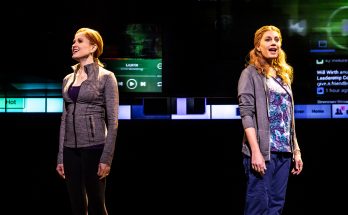 Meet Ahmad Mayes, the Atlanta Symphony Orchestra’s Community Programs Coordinator. He manages the orchestra’s community programs and partnerships, and all activities outside of Symphony Hall. He also provides administrative support to orchestra musicians for the hundreds of hours of service they do each season.
Meet Ahmad Mayes, the Atlanta Symphony Orchestra’s Community Programs Coordinator. He manages the orchestra’s community programs and partnerships, and all activities outside of Symphony Hall. He also provides administrative support to orchestra musicians for the hundreds of hours of service they do each season.
What’s your favorite part of your job?
I love being able to see firsthand the immediate impact the music we share has on the people of Atlanta — many of whom would not have access to the Atlanta Symphony without our community programs. I also enjoy hearing the remarkable individual talents of our musicians. Orchestra members typically perform throughout greater Atlanta as soloists or in small chamber ensembles, which allows them to really shine and demonstrate their personal musicianship. That’s something that you don’t always get to see when they perform as part of the full orchestra at symphony hall!
What kinds of programs fall under community engagement?
The orchestra is committed to becoming more connected within the Atlanta community through several channels. The orchestra’s Community Ticketing Program partners with dozens of Atlanta nonprofit organizations to provide access to concerts for hundreds of people for whom the magic of live music is often beyond reach. We expect to host nearly 1,000 individuals in the inaugural year of this program.
Musicians in Action places our musicians in dozens of community locations each year. For example, associate principal viola Paul Murphy and some of his colleagues share music with the homeless during lunch hour at Crossroads Community Ministries several times each year. Recently, the Atlanta Symphony Brass Quintet volunteered as guest teaching artists for the Atlanta Music Project, helping the organization empower underserved youth through the study of music.
We also partner with Latino-based organizations, such as the Latin American Association and Instituto de México, to better serve as an arts resource to the rapidly growing Latino community in Atlanta. We’ve already held five outreach performances and events this year, reaching nearly 2,000 people.
How do the musicians feel about performing in the community?
The musicians are the first to recognize the importance of having a community presence; in fact, 70 players are currently involved in our efforts. For example, cellist Joel Dallow’s passion is performing in-school chamber music concerts to elementary and middle-school children. Violinist Juan Ramirez has a real desire to help connect the orchestra to Latino audiences, and violinists Ruth Ann Little and Tom O’Donnell really enjoy bringing music into retirement communities. There are many more stories, too. In short, all of our musicians recognize that music can be powerful in many ways — whether it is to strengthen neighborhoods, serve the elderly, heal the sick, or champion diversity.
It’s already been a very busy year for the orchestra in the community. What are some highlights?
We held our first “Martin Luther King, Jr. Days of Service” in conjunction with our annual “A King Celebration” concert, and orchestra musicians served more than 900 individuals through music. We’ve also increased our Latino partnerships, teaming up with the Mexican Consulate and DeKalb Public Libraries to better serve this fast-growing segment of Atlanta’s population.
What’s ahead?
The orchestra recently entered into a partnership with the Georgia Humanities Council and the Smithsonian Institution to celebrate music throughout the state, and we’ve been invited to participate in “New Harmonies” — a traveling museum exhibit about American roots music. Through this collaboration, we’re looking forward to establishing a stronger presence in the outlying parts of Georgia and also connect what we do at the Atlanta Symphony to the different American music traditions being featured in the exhibit. We’re planning outreach events in Calhoun and Madison as part of this program, and we hope to have a presence in all 12 communities that will host the exhibit throughout the state over the next two years.
What single orchestra community event stands out in your mind?
Last September a group of musicians performed a program of Latin music at a Mexican Independence Day celebration with the Instituto de México and the Mexican Consulate. What made the evening so memorable was how the audience responded to the music. During one piece — a song in the Mexican musical style, Huapango — it was only a matter of seconds before the audience erupted with cheers and applause! It was quite obvious that many of them knew this folk dance and that it was an important part of their heritage. Their appreciation and enjoyment for the art being performed by our musicians was palpable, and I was honored that we could connect to this audience this way.
Why do you think it is so important for the orchestra to be involved with the community?
Music is too important and powerful to not share with the community. As the premier music performance organization in the Southeast, it’s the Atlanta Symphony Orchestra’s responsibility to make great music available to everyone and provide people the chance to experience it in different ways. While we’re proud of the reach of our programs, the real magnitude of our efforts can be felt through the stories we hear from those who are directly impacted. We are constantly hearing from young music students who have been inspired by personal interactions with our musicians and from people from all walks of life who enjoy an orchestra concert for the first time. The work we do here is very important and also incredibly rewarding.
::
Edited by Kimberly Nogi of the ASO.



